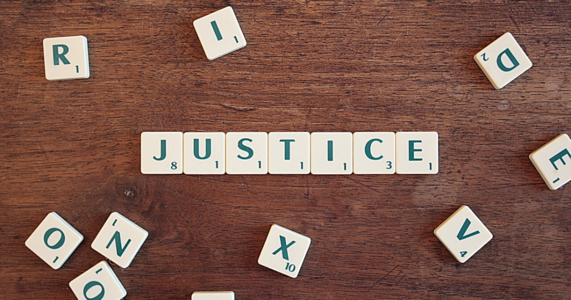1,000 signatures reached
To: Finance Minister Grant Robertson and Minister for Justice Andrew Little
Increase funding for legal aid in Budget 2020
.png)
No matter who we are, or where we’re from, we all deserve access to justice.
But right now, successive governments have underfunded Legal Aid to the point where access to good legal representation is reserved only for the rich.
We, the undersigned, call on Finance Minister Grant Robertson and Justice Minister Andrew Little to make sure our legal system cares for all of us, regardless of our bank balance, by significantly increasing funding to legal aid and the provision of cultural reports in Budget 2020.
But right now, successive governments have underfunded Legal Aid to the point where access to good legal representation is reserved only for the rich.
We, the undersigned, call on Finance Minister Grant Robertson and Justice Minister Andrew Little to make sure our legal system cares for all of us, regardless of our bank balance, by significantly increasing funding to legal aid and the provision of cultural reports in Budget 2020.
Why is this important?
New Zealanders believe in fairness. We believe people should be given a fair go.
But as it stands, successive governments’ underfunding of legal aid has allowed access to justice to become a privilege reserved only for the rich.
In 2016 the Law Society found that the average charge-out rate for lawyers was a staggering $292.70 per hour plus GST.* If you work a 40 hour week on minimum wage, that’s a week’s pay gone in just two hours!
The representation, advice, and support from legal aid lawyers is a crucial bridge to access to justice for the many whānau who are unable to front exorbitant legal fees. It is meant to be a safety net for people who cannot afford a lawyer and can be the difference between having the opportunity to right wrongs and rebuild your life, or ending up in the overcrowded cages we call jail.
Legal aid is also one of the only ways people can access Section 27 cultural reports, which examine the reasons why people cause harm or offend in the first place in order to inform sentences that result in less harm and more good in the future.
For too long, people in government have neglected legal aid and placed unfair restrictions on who can qualify for help. As a result, more and more people are going into a spiral of debt or having to represent themselves in court without professional legal support.
We want to see a significant increase to funding for legal aid in Budget 2020 to make sure justice and legal representation is available to all - not just the few.
References and further reading:
Access denied: Thousands brave NZ courts without a lawyer due to cost. NZ Herald, 4 November 2018. https://www.nzherald.co.nz/nz/news/article.cfm?c_id=1&objectid=12277484
The New Zealand Legal Services Mapping Project: Finding free and low-cost legal services. Civil Justice Insights Series: University of Otago Legal Issues Centre, 2018. Kayla Stewart and Bridgette Toy-Cronin. https://ourarchive.otago.ac.nz/bitstream/handle/10523/8054/Mapping%20UOLIC%20Report%2023%20May.pdf?sequence=3&isAllowed=y
Charge-out rates information released. New Zealand Law Society, 2016. https://www.lawsociety.org.nz/lawtalk/lawtalk-archives/issue-893/charge-out-rates-information-released. *This research focussed on lawyers employed at law firms
Legal aid funding limits creating ‘justice gap.’ Stuff. 19 July 2014. http://www.stuff.co.nz/national/10285613/Legal-aid-funding-limits-creating-justice-gap
Lawyers duck legal aid work. Stuff. 26 July 2014. http://www.stuff.co.nz/the-press/10312946/Lawyers-duck-legal-aid-work
But as it stands, successive governments’ underfunding of legal aid has allowed access to justice to become a privilege reserved only for the rich.
In 2016 the Law Society found that the average charge-out rate for lawyers was a staggering $292.70 per hour plus GST.* If you work a 40 hour week on minimum wage, that’s a week’s pay gone in just two hours!
The representation, advice, and support from legal aid lawyers is a crucial bridge to access to justice for the many whānau who are unable to front exorbitant legal fees. It is meant to be a safety net for people who cannot afford a lawyer and can be the difference between having the opportunity to right wrongs and rebuild your life, or ending up in the overcrowded cages we call jail.
Legal aid is also one of the only ways people can access Section 27 cultural reports, which examine the reasons why people cause harm or offend in the first place in order to inform sentences that result in less harm and more good in the future.
For too long, people in government have neglected legal aid and placed unfair restrictions on who can qualify for help. As a result, more and more people are going into a spiral of debt or having to represent themselves in court without professional legal support.
We want to see a significant increase to funding for legal aid in Budget 2020 to make sure justice and legal representation is available to all - not just the few.
References and further reading:
Access denied: Thousands brave NZ courts without a lawyer due to cost. NZ Herald, 4 November 2018. https://www.nzherald.co.nz/nz/news/article.cfm?c_id=1&objectid=12277484
The New Zealand Legal Services Mapping Project: Finding free and low-cost legal services. Civil Justice Insights Series: University of Otago Legal Issues Centre, 2018. Kayla Stewart and Bridgette Toy-Cronin. https://ourarchive.otago.ac.nz/bitstream/handle/10523/8054/Mapping%20UOLIC%20Report%2023%20May.pdf?sequence=3&isAllowed=y
Charge-out rates information released. New Zealand Law Society, 2016. https://www.lawsociety.org.nz/lawtalk/lawtalk-archives/issue-893/charge-out-rates-information-released. *This research focussed on lawyers employed at law firms
Legal aid funding limits creating ‘justice gap.’ Stuff. 19 July 2014. http://www.stuff.co.nz/national/10285613/Legal-aid-funding-limits-creating-justice-gap
Lawyers duck legal aid work. Stuff. 26 July 2014. http://www.stuff.co.nz/the-press/10312946/Lawyers-duck-legal-aid-work
